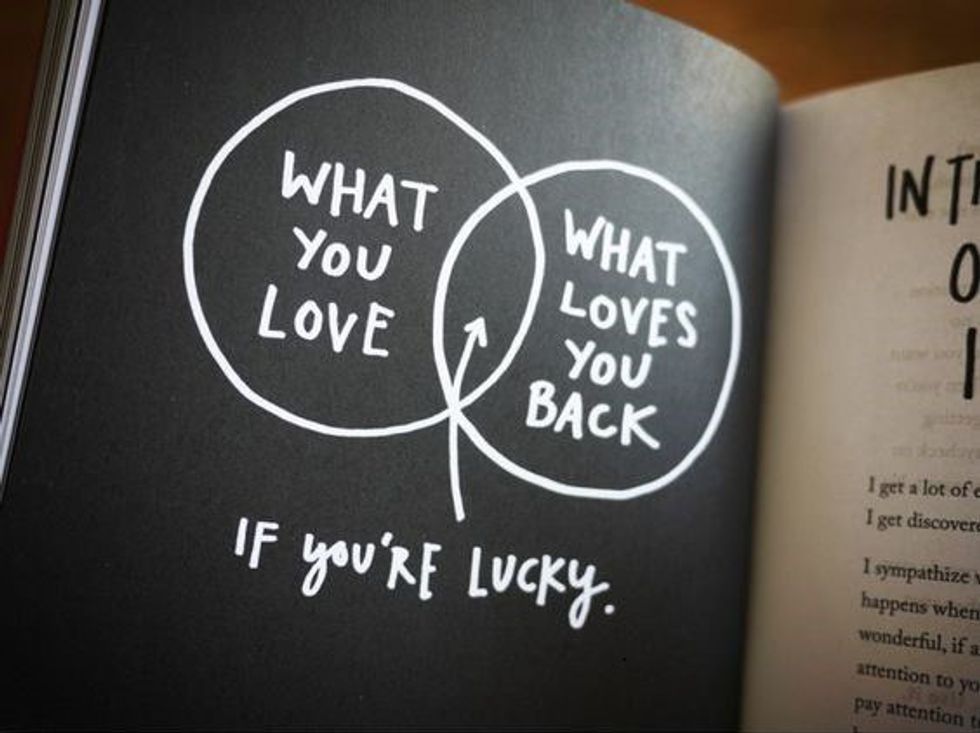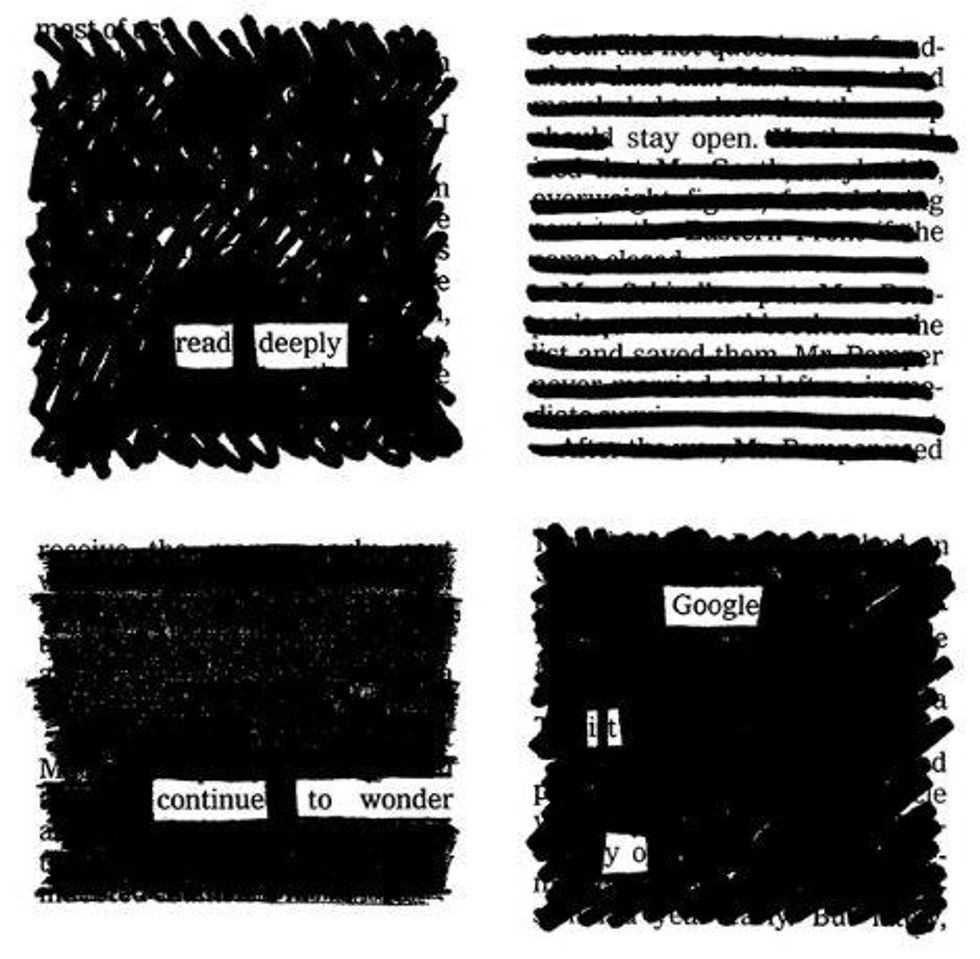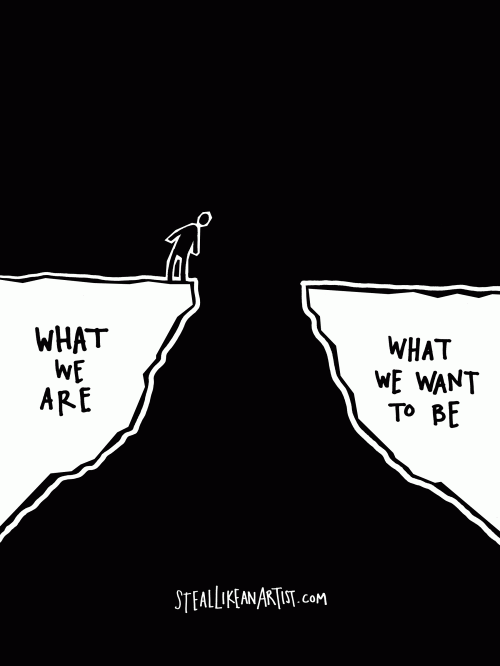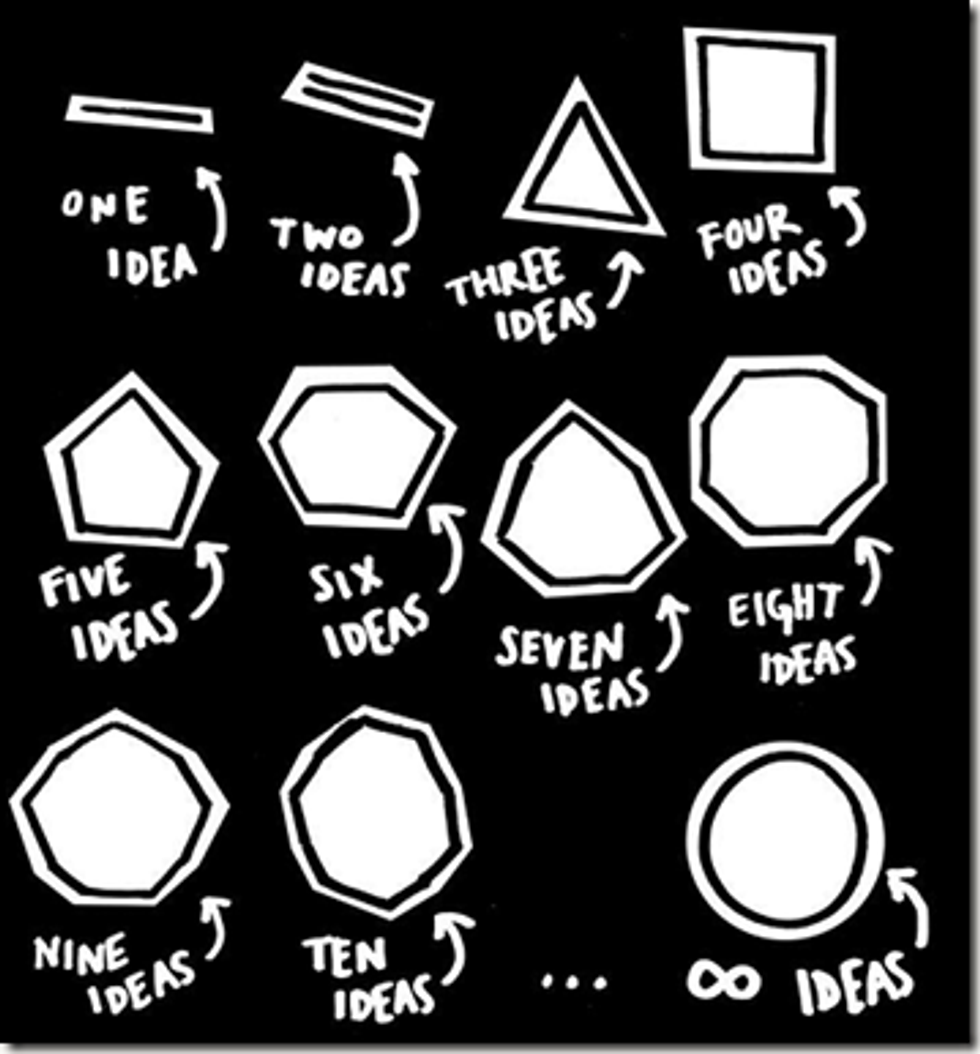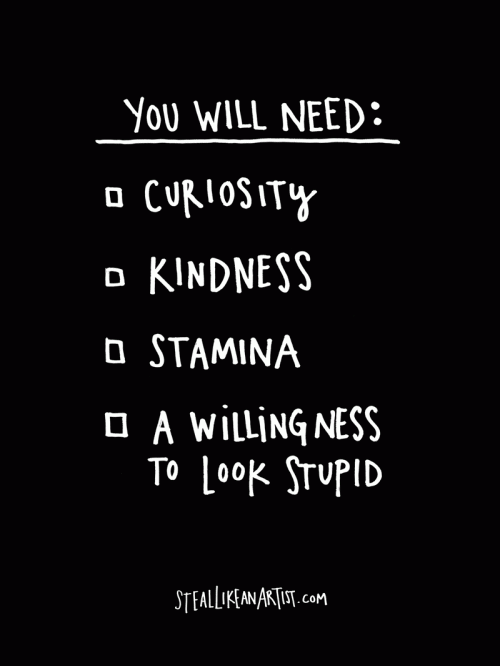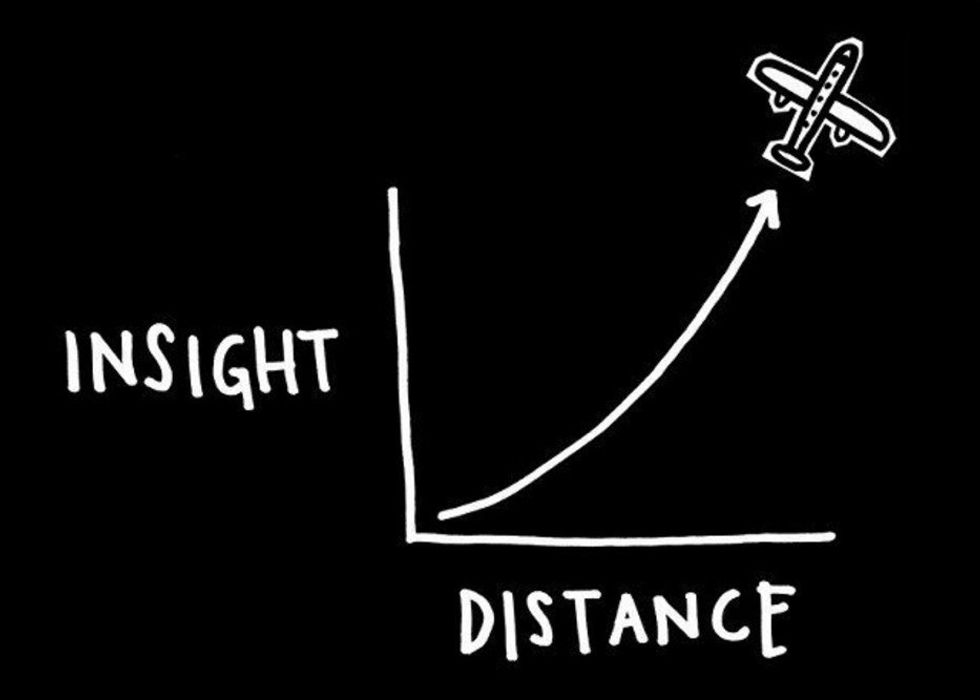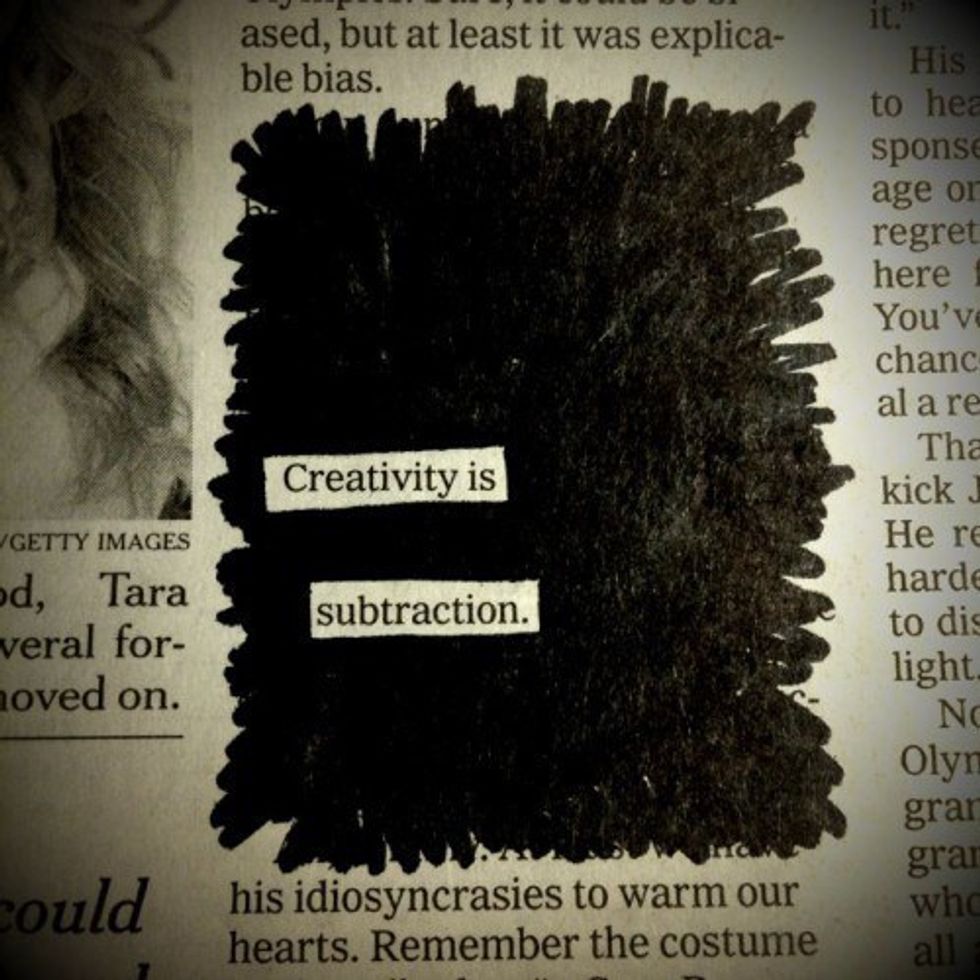Already, on my second article, I find myself in the predictable predicament of running out of ideas. Awesome! Or, rather, I had so many ideas that were already written about from other people. Nothing is new. Everything I’ve thought about writing has already been said and done. I'll Google my idea for inspiration, and I’ll see on Cosmopolitan, Time, Refinery 29, or wherever that my idea – sometimes with my same imagined title – is already published.
So I blanked the entire week trying to write this article because I wanted to make something new and original.
And therein lies the problem. Not only have I never said anything new in my entire life, but there might not be anything new to say ever.
In Austin Kleon’s New York Times’ Bestseller “Steal Like An Artist,” he details precisely the predicament I’m in as a writer/human being. Inspirational, honest, and beautiful, Kleon offers a guide on how to write from influences, shake up the creative process, and, of course, steal like an artist. For artists of all kind, his book offers lots of advice to get your creative cogs turning. For humans of all kind, you'll find plenty to hook onto as well.
Here are the best bits I learned:
1. “All Advice is Autobiographical”
“It’s one of my theories that when people give advice, they’re really just talking to themselves in the past.”Though not particularly about the writing process, immediately his suggestion helped me make sense of an unnamed feeling I've had when giving advice. The intention is to never assume someone has or will have the same experience, but advice always comes out that way, as a talking to one's younger self. It doesn't mean this advice isn't useful, but it does explain why I always say, "I think I'm mostly lecturing myself when I say this, but..."
2. "School Yourself"
“Google everything. I mean everything.”
Last year in one of my classes, a professor asked us if we ever Googled any words, people, or references we didn't know when we came across them while reading lengthy and difficult texts. Everyone shrugged and either answered "sometimes" or "not really, no." Our professor was astounded. She talked about how in her school days she would go to the library or ask someone to find whatever things she didn't know. Now, she is ecstatic that all of this information can be accessed anytime at the tips of our fingers with smartphones, tablets, or laptops. At the same time, here we are, the generation who grew up among the huge advancements in portable technology, and for some reason, we don't look things up. There can be many reasons for this: laziness, skimming the reading, don't have time, too tired, don't think it's important, etc. There is also the fact that people around my generation constantly use the internet to search, look things up, and learn new things, though not necessarily related to the school work. How to format a letter to my senator, or the history of women's marches, or where is the emergency brake for a Toyota Avalon 2000 model come to mind of recent searches I've done. I am constantly reading, constantly working, constantly learning, and sometimes I don't think Googling that extra bit of info from packet is going to make that much of a difference. Then again, neither does scrolling through Tumblr for three hours straight, or checking Facebook for political rants, or watching YouTube videos all night. Does it really take that much extra time to do a quick Google search?
3. “Make Things, Know Thyself”
“There’s this very real thing that runs rampant in educated people. It’s called ‘imposter syndrome’… It means that you feel like a phony, like you’re just winging it, that you don’t have any idea what you’re doing. Guess what: none of us do.”
Every time somebody asks me how I wrote a paper, I answer, "I don't know, I think I just BSed it." That's not true, though. I never mention how I put hours, if not days, into that piece. How I rewrote it several times. How I cried over it. How I edited it several more times. How I cried over it again. How I tried to "fix" it because I never thought it was good enough. How I had to stop myself from doing anything more and print out a final draft to turn in. And then I got really great feedback from my professors, even though I didn't think it was very good. I must suffer this syndrome. It never feels like I know what I'm doing, especially during the process. But I have to start somewhere to figure out what my style is.
4. “Write What You Like”
“Write the kind of story you like best – write the story you want to read”
Kleon compares this concept to writing fanfiction. The project is born out of a pre-existing idea. The writer tends to have extensive knowledge on the subject, studying it or thinking on it for hours. The writer then thinks of how they would like the idea to go, so they write their own script. The original idea may not follow the same thread as the author, but the author sees something in it that they like and wants to craft it in a way that helps see that idea in a new way.
5. “In the Beginning, Obscurity is Good”
“There’s no pressure when you’re unknown… When you’re unknown, there’s nothing to distract you from getting better.”Ah, the terrifying idea of sharing your work, and the even scarier idea that people might actually read it. To this day, I struggle with this concept. There's something very personal about writing your own work, even if it's fictional. Little pieces of you mix up with the rest of it, in its context, in its core, for everyone to see. The great thing about not having a fanbase is precisely what Kleon points out: nobody cares. I'm just typing away at my computer, worrying how this article should sound, what people will make of it, when in reality only about ten people might read this, and even less will give a damn about it. But that's OK. As I said in an first article, now is the time to experiment, to practice, to build up a portfolio. What better time to do that than when nobody is watching?
6. “Leave Home”
“Your brain gets too comfortable in your everyday surroundings. You need to make it uncomfortable… when the world looks new, our brains work harder.”
Sorry, fam. This birdy's gotta fly out of her nest. It's been the comfiest, coziest, best time I could've had growing up, and that's precisely why sooner or later I will leave. For many reasons other than this, the time is almost here. Unless I can't afford to move out, in which case... hey, roomies! I'll settle for weekend vacations to explore.
7. “Choose What to Leave Out”
“Nothing is more paralyzing than the idea of limitless possibilities. The idea that you can do anything is absolutely terrifying.”
For me, this is the hardest. By default, I don't have a filter, in the sense that I take everything in and keep it with me for a very, very long time. I still get hung up on embarrassing moments from middle school. The internet bully on a random YouTube comment still gets to me. The list of everything I have to get done this weekend terrifies me. Someday, I need to put it all away. What can I get done today? What can I get done now? Which thoughts are useful, and which are just harmful? Narrow it down. Channel everything into one or two things at a time. Nothing keeps me from working more than the idea that I have so much to work on. Sure, the notion of limitless possibilities sounds romantic, but really it only promotes the kind of paralyzing effect that Kleon suggests.
So what's the point of all this if nothing is new?
Just because we know a baby will eventually say their first word doesn’t make it any less precious. Just because millions of baby’s first words are some variant of “mom” or “dad” doesn’t take away the joy over hearing them struggle with the word for the first time.
There is always more to say. About everything. There are new ways to say old things, new people to realize obvious things, new discoveries made that lead to the same ideas, over and over. The first love. The first drive. The first steps. The first job. The first child. The first insult. The first bruise. The first march. It’s all new to someone, regardless of the fact it’s happened to people for thousands of years. Everything comes from something else. The idea is to transform those same old experiences into new territory, to keep evolving with the times and interacting with our world and each other.




